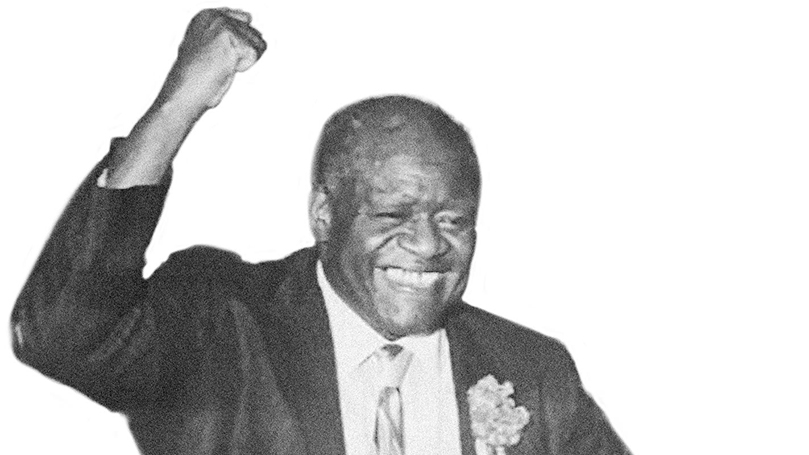
A poem in salute of the Communist Party of The United States of America, on the occasion of Its 100th anniversary in struggle
By Rafael Pizarro
(C) 2019
Henry Winston paces his cell
Five steps and back,
Five steps and back. How do you not run into the wall?, his cell mate asks,
“Three steps forward, two steps back,” he jokes.
The boy with bad teeth and little education doesn’t get it but
He loves how Winston laughs
It makes him laugh too.
At night the boy cries — he’s
Too young to be here
What can Henry do
He tells the boy stories, stories
Of life and struggles
He knows not to make speeches, polemics, for what does it mean
To this boy, so far from home,
Jailed for the crimes of poverty.
He knows the boy likes a joke
But he knows not to make one
When the boy is in his bunk, humming songs of rural Georgia
Better be silent then and let him
Work through his suffering. There’s time for laughter in the morning.
But in the morning the guard says, the one that would be kind if his job allowed it,
You have a visitor, Winston, be ready in ten.
Who could it be, the boy asks
No idea, he says
His wife comes in the afternoons.
It’s a reporter from a small newspaper, starved for news: he didn’t want this assignment but he does need his paycheck and so does his family.
The boy lays on his bunk, face to the wall, and only listens.
The reporter asks,
Do you regret your crime.
What crime.
Being a red.
A man can’t help what he thinks.
But is it worth losing your freedom, the reporter asks.
Henry lifts his head,
What do you mean, I haven’t
Lost my freedom.
The reporter looks lost, confused — but you’re in jail for who knows how long?
I see, says Henry,
I see your error:
The man who works day and night and still doesn’t have enough to feed his family, that man is not free;
The woman who must accept the abuse of her employers’ children, lest she lose her job — she is not free;
The child forced to go to work at an early age rather than get an education, that child is not free;
The men who are torn from their homes to kill men in far off lands who stink no higher in heaven’s nostrils than they, those men are not free;
The woman, bereft of everything a woman should have except her body, which she gives so she may live, she is not free;
The men who have been stripped of their souls and fill the space with sweet poison that only kills them slowly — those men are not free.
Henry leans back and laces his fingers behind his head and says, Me, I’m perfectly comfortable.
The boy snickers, knowing when Henry is having a little joke. The reporter stands up abruptly, thinks he’s been had, calls the guard — none of this will appear in his article. When he leaves, Henry and the boy burst out laughing.
The guards don’t like this
Tomorrow he’ll be moved to another cell, alone, where he cannot make friends,
Where there will be no one to read the papers to him.
He tells the boy not to despair, he’ll be home soon.
In the morning Henry is told to take his blanket and the gate clanks open
He embraces the boy, ignores his tears as he knows this will embarrass him.
Henry says no words, it would hurt and he is determined that his jailers will not hurt him
The gate slams shut behind him and as he’s led away by the arm he hears the boy call out one last time, so that everyone can hear
As if calling for a round buoy —
Henry, Henry, wait! — what’s the name of that book you told me about?


 Join Now
Join Now